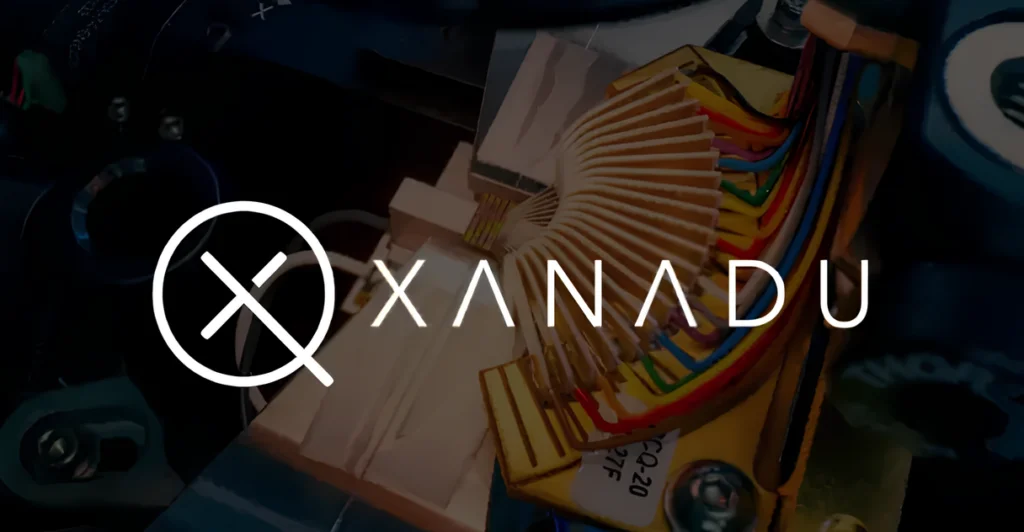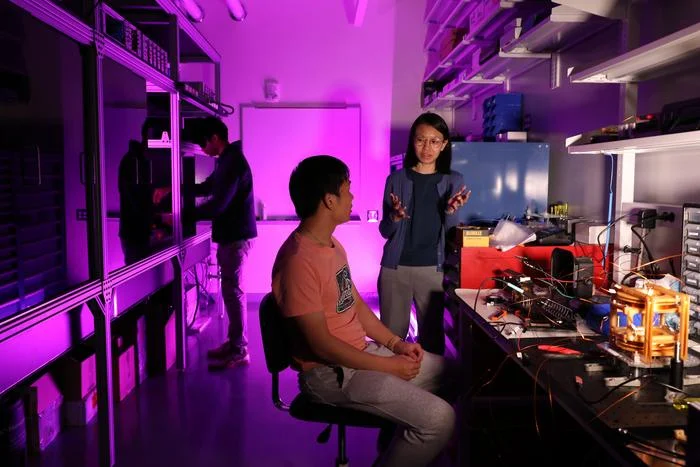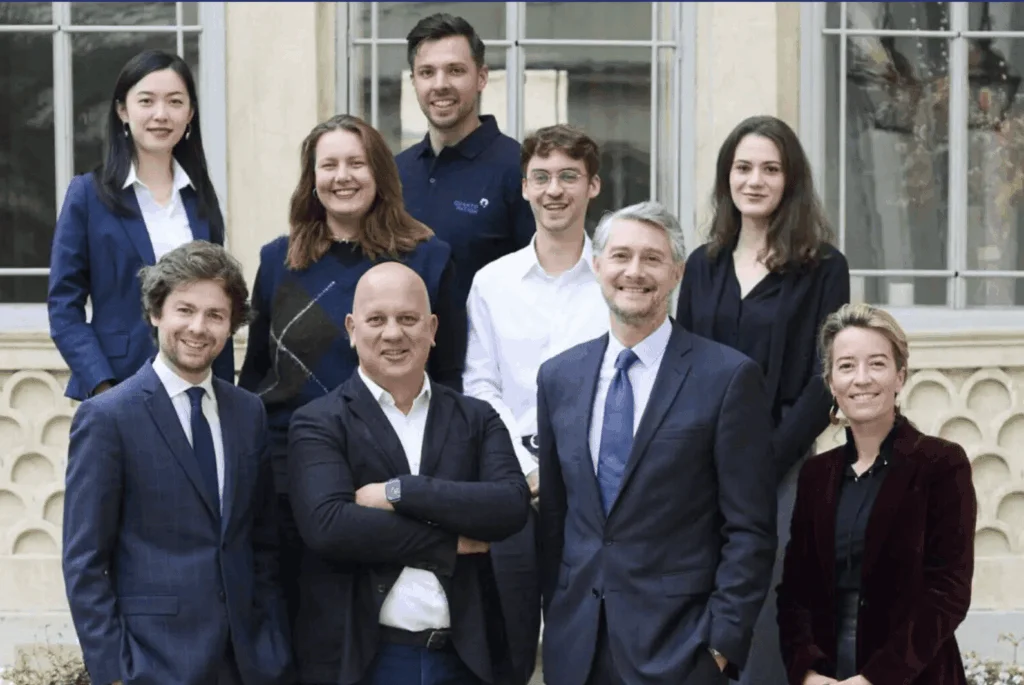Insider Brief
- The GSMA — Global System for Mobile Communications Association — will form a post-quantum telco network taskforce in response to the future of advanced quantum computing’s potential to disrupt communications.
- GSMA will be joined by partners IBM and Vodafone to help define policy, regulation and operator business processes.
- The World Economic Forum recently estimated that more than 20 billion digital devices will need to be either upgraded or replaced in the next 10-20 years to use the new forms of quantum-safe encrypted communication.
- Image: IBM
PRESS RELEASE — The GSMA today announced the formation of the GSMA Post-Quantum Telco Network Taskforce, with IBM and Vodafone as initial members, to help define policy, regulation and operator business processes for the enhanced protection of telecommunications in a future of advanced quantum computing.
Unlike today’s computers that rely on bits for calculation, quantum computers harness the exponential power of quantum bits (qubits). This can be a complicated, simultaneous mix of 1s and 0s, creating the potential to solve extremely complex problems that challenge even the most powerful supercomputers today.
The GSMA Post-Quantum Telco Network Taskforce will help define requirements, identify dependencies and create the roadmap to implement quantum-safe networking, mitigating the risks associated with future, more-powerful quantum computers. Without quantum-safe controls in place, sensitive information such as confidential business information and consumer data could be at risk from attackers who harvest present-day data for later decryption. The World Economic Forum recently estimated that more than 20 billion digital devices will need to be either upgraded or replaced in the next 10-20 years to use the new forms of quantum-safe encrypted communication.

“The GSMA Taskforce’s goal is to bring together leading global communication services providers with experts from IBM, Vodafone and other operators and ecosystem partners to understand and implement quantum-safe technology. By working together to establish consistent policies, we can define quantum-safe approaches that protect critical infrastructure and customer data, complementing our ongoing security efforts to increase resiliency in future networks,” said Alex Sinclair, the GSMA’s Chief Technology Officer.
To address the challenges presented by emerging quantum technology, the U.S. National Institute of Standards and Technology (NIST) announced in July 2022 that it had chosen the first four post-quantum cryptography algorithms to be standardised for cybersecurity in the quantum computing era. These algorithms are designed to rely on the computational difficulty of problems from the mathematical areas of lattices, isogenies, hash functions and multivariate equations — and protect today’s systems and data from future quantum computers.
IBM, a leader in cryptography and pioneer in quantum technology – with the world’s largest fleet of cloud-accessible quantum computers – contributed to the development of three of NIST’s four chosen post-quantum algorithms.
“Given the accelerated advancements of quantum computing, data and systems secured with today’s encryption could become insecure in a matter of years. IBM is pleased to work with the GSMA Post-Quantum Telco Network Taskforce members to prioritize the telco industry’s move to adopt quantum-safe technology,” said Scott Crowder, Vice President of IBM Quantum Adoption and Business Development.
“In a modern Hybrid Cloud world, communications services and compute technologies are interconnected and underpin all industries, which means the adoption of quantum-safe cryptography in telecom will affect all enterprises and consumers. This taskforce will support the telco industry by creating a roadmap to secure networks, devices and systems across the entire supply chain,” said Steve Canepa, General Manager, Global Industries, IBM.
Luke Ibbetson, Head of R&D, Vodafone, said: “Quantum computing is by far the biggest revolution in computing since the 1950s, and most of it will have a positive impact on our industry and society as we move towards fully automated networks. It has the potential to solve highly complex optimisation challenges which may allow us to further fine-tune our networks for an even better customer experience.
“At the same time, future quantum computing could inherently undermine the cryptographic principles relied on today. That is why Vodafone is committed to working with the GSMA and other members of the GSMA Post-Quantum Telco Network Taskforce to protect and secure customer data with the timely adoption of quantum-safe solutions, policies and standards.”
The GSMA Post-Quantum Telco Network Taskforce will convene to drive consensus and adoption in this new field and it will be oriented across three areas:
- Strategy – to integrate quantum-safe capabilities into telco network operators’ technology, business processes and security.
- Standardisation – to identify the needs and common alignments for the integration of quantum-safe capabilities into existing telco networks.
- Policy – to advise on telco network public policy, regulation and compliance and to ensure scale across the industry.
About GSMA
The GSMA is a global organisation unifying the mobile ecosystem to discover, develop and deliver innovation foundational to positive business environments and societal change. Our vision is to unlock the full power of connectivity so that people, industry, and society thrive. Representing mobile operators and organisations across the mobile ecosystem and adjacent industries, the GSMA delivers for its members across three broad pillars: Connectivity for Good, Industry Services and Solutions, and Outreach. This activity includes advancing policy, tackling today’s biggest societal challenges, underpinning the technology and interoperability that make mobile work, and providing the world’s largest platform to convene the mobile ecosystem at the MWC and M360 series of events.
We invite you to find out more at gsma.com
About IBM
IBM is a leading provider of global hybrid cloud and AI, and consulting expertise. We help clients in more than 175 countries capitalize on insights from their data, streamline business processes, reduce costs and gain the competitive edge in their industries. More than 4,000 government and corporate entities in critical infrastructure areas such as financial services, telecommunications and healthcare rely on IBM’s hybrid cloud platform and Red Hat OpenShift to affect their digital transformations quickly, efficiently and securely. IBM’s breakthrough innovations in AI, quantum computing, industry-specific cloud solutions and consulting deliver open and flexible options to our clients. All of this is backed by IBM’s legendary commitment to trust, transparency, responsibility, inclusivity and service.
Visit https://www.ibm.com/quantum/quantum-safe for more information about IBM Quantum Safe solutions.
For more market insights, check out our latest quantum computing news here.















